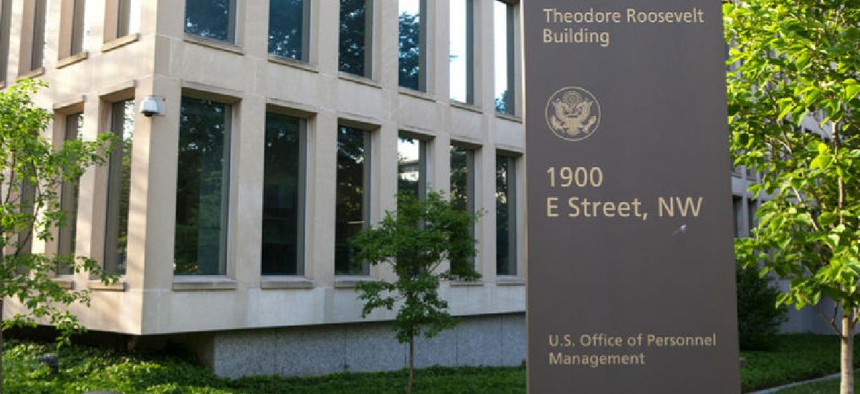OPM rescinds guidance after ruling on workforce orders

The federal government's HR agency withdrew portions of guidance issued in response to President Trump's three workforce executive orders after they were invalidated by a district court ruling.

OPM headquarters in downtown Washington. (Photo credit: Mark Van Scyoc / Shutterstock.com)
The federal government's HR agency withdrew some guidance issued in response to President Donald Trump's executive orders after they were invalidated by a district court ruling.
In an Aug. 29 memo to federal agencies, Office of Personnel Management Director Jeff T.H. Pon announced that the agency will "fully comply" with the decision of U.S. District Court Judge Ketanji Brown Jackson.
That means for now OPM is telling agencies they should consider certain portions of guidance issued in July to be rescinded. The now-invalidated guidance includes details on how agencies communicate and negotiate collective bargaining agreements as well as the time frame for negotiating those agreements, which agencies were encouraged to adopt at the "soonest opportunity" according to documents.
Most significantly, OPM withdrew guidance designed to restrict the use of "official time" -- paid time spent on union matters -- in collective bargaining agreements as well as restricting employee use of any official time for lobbying purposes.
OPM also withdrew some guidance in the order that makes it easier to fire feds under certain circumstances after Jackson's ruling invalidated sections on negotiated grievance procedures.
Much of the guidance remains in place. Pon noted in his memo that the government is currently considering whether to appeal. That decision has not yet been made.
"We are disappointed in the ruling and are considering the appropriate next steps to ensure the President is able to fulfill his constitutional duties, run an effective and efficient government, and protect taxpayers from waste and abuse," said Justice Department spokesman Andy Reuss.
NEXT STORY: Project management vs. product management



